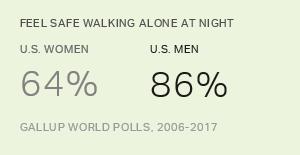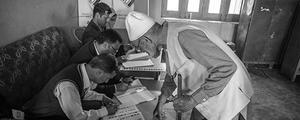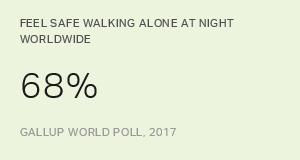Every day, people across the world face risks and potential threats to their safety.
How they perceive these risks dictates how they react to them. If people aren't aware of them, or misjudge them, the consequences can be serious, and even deadly. Misperceived risks can also be extremely costly for countries and their citizens -- both in terms of misallocated resources and missed opportunities.
Understanding how people perceive risk is critical to designing and implementing effective policies or strategies aimed at boosting overall safety.
To Make People Safer, We Need to Know How People Understand Risk
Despite the progress that has been made in understanding how people feel about risk, more information is needed, especially in poorer regions of the world where data are scarce. Not only is this population understudied, but there is also considerable evidence that people in lower-income countries bear a greater risk burden than individuals in higher-income countries.
For instance, more than 90% of unintentional injury deaths worldwide occur in lower- and middle-income countries, according to the World Bank. There is also a need to better understand how people from all parts of the world feel about new sources of security concerns, such as climate change and artificial intelligence, so that their perspectives can be brought into the global dialogue.
One effective, reliable way to comprehend people's attitudes toward and understanding of risk and safety is to ask people directly. Gallup and Lloyd's Register Foundation, a charitable organization that seeks to make people around the world safer, are launching the first-ever global study of the public understanding of risk to do just that.
The Lloyd's Register Foundation World Risk Poll will survey 140 countries every two years over the next eight years, starting in 2019. Each biennial wave will include a nationally representative poll of approximately 1,000 adults in each country, totaling more than 140,000 interviews. This survey will provide insight into how people across the world view the concept of risk (in terms of potential benefit or potential harm), what their greatest safety concerns are, why they expose themselves to certain types of risks and what steps they take to mitigate certain types of risks.
The data from the World Risk Poll will be a freely available public good, designed to address critical data gaps that currently hamper our understanding of safety. The survey will also be the first global study of risks and injuries people face at work, a topic that has not been rigorously studied at scale in many lower-income countries.
Lloyd's Register Foundation and Gallup developed the questionnaire last year. Cognitive tests took place in eight countries and in nine languages. The results of the tests and an outline of the questionnaire can be found in our new report, Talking Risk: Developing the Questionnaire for the Lloyd's Register Foundation World Risk Poll (PDF download).
Gallup and Lloyd's Register Foundation will report the results of the inaugural Lloyd's Register Foundation World Risk Poll in 2020.
Get updates from Gallup on the latest news about this project.




